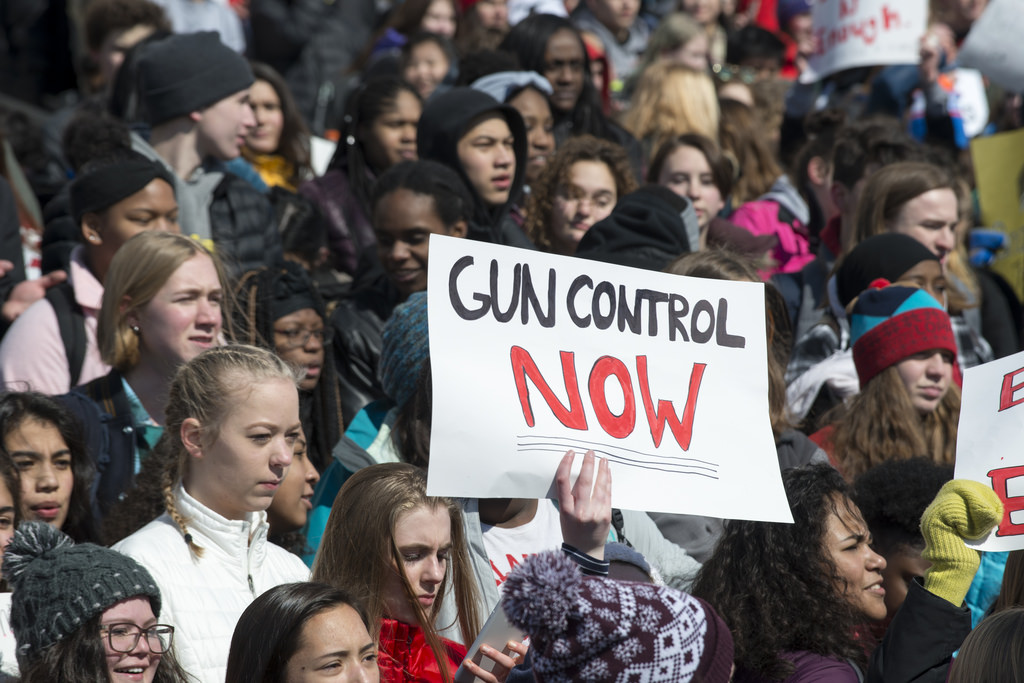Does gun control solve school shootings?
In the aftermath of the Parkland shooting, gun control seems to be a greater issue than ever before. The March for Our Lives coalition prescribes an assault rifles ban and universal background checks, hoping to use such measures to preserve the lives of American students.
But such regulations would only take away access to gun ownership. It wouldn’t solve the problem of gun violence, for several reasons.
First, scientific research on gun control is limited. According to the Rand Corporation, which studies public policy, “In recent decades, the U.S. government has spent just 1.6 percent as much on gun policy research as it has on research involving causes of similar levels of mortality in the United States, such as traffic accidents or sepsis, meaning that published studies on gun policy are correspondingly rare.”
This research is limited because of a congressional amendment which mandates that none of the funds which go to the Centers for Disease Control and Prevention can be used for gun control advocacy.
Thus, will raising the age limit to 21 for the purchase of a gun prevent mass shootings like the one in Parkland? Will banning assault weapons prevent mass shootings? The answer is a resounding “we don’t know.”
Of course, it’s always possible that such measures could work, and it probably wouldn’t hurt to add mental health screenings and background checks before allowing people to purchase guns or emphasizing training for police officers assigned to schools.
But imposing further restrictions on law-abiding gun owners probably won’t change much. More than 300 million guns are in circulation around the United States — that’s too many to track. And after all, according to The Washington Post, many shooters seemed normal until they attacked, or were of age to own a gun. It’s impossible to accurately predict who — or when — someone will choose to attack.
Besides, it’s unfair to paint every law-abiding gun owner with a broad brush. Whatever David Hogg may say, it was not Sen. Marco Rubio, the NRA, or NRA members who had a burden of responsibility after the shooting in Parkland. Local law enforcement and the FBI were warned and yet failed to respond to the warnings about the shooter.
And if restrictions were imposed, what’s stopping someone from forming a black market to sell guns?
Furthermore, while public attention is focused on school shootings, why don’t we ever hear any solutions for violence in our cities? According to Business Insider, the lifetime odds of dying in a mass shooting are 1 in 11,125, while the odds of death by assault with a gun are 1 in 315, and the odds of dying in a motor vehicle accident are 1 in 108.
It is hard to see how imposing more restrictions on gun owners across the United States could have any impact on school shootings. Restrictions such as raising the age limit or banning assault weapons shows only inconclusive results, at best, and governmental regulation alone cannot control the vast number of guns around the United States.
Instead of imposing restrictions with a heavy hand, we should devote more public funding to research. According to a study from the Rand Corporation, “the majority of policy disagreements are associated with factual questions about policies’ true effects . . . new and significant investment in the scientific study of gun policies [offers a path forward to finding solutions].” When we convince Congress to support public research, we can find solutions that protect people and deter criminals from targeting our schools, churches, and workplaces. But in the meantime, imposing regulations on gun owners could do far more harm than good.
Caroline Wolfe, Opinions Editor
[Photo courtesy of Creative Commons]





